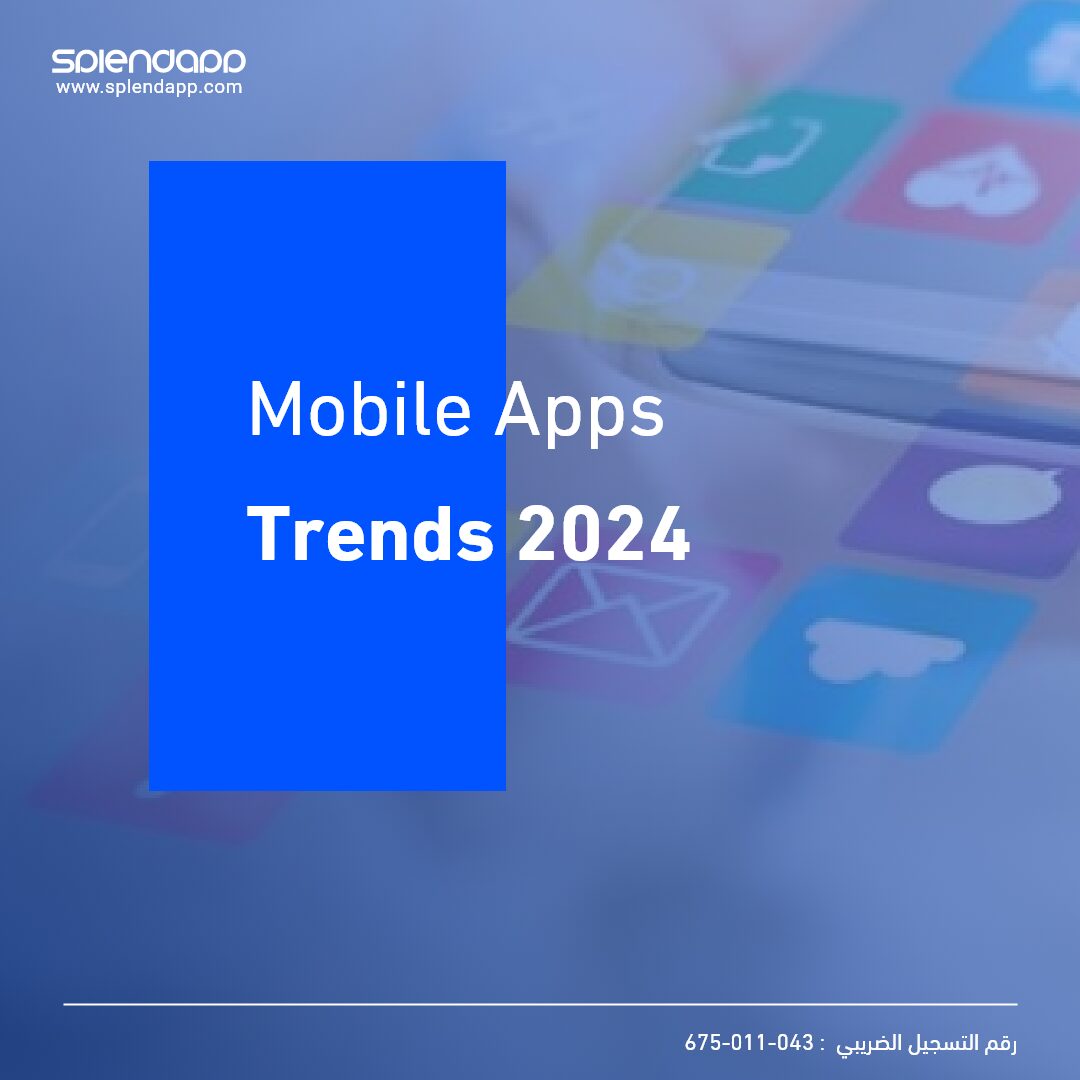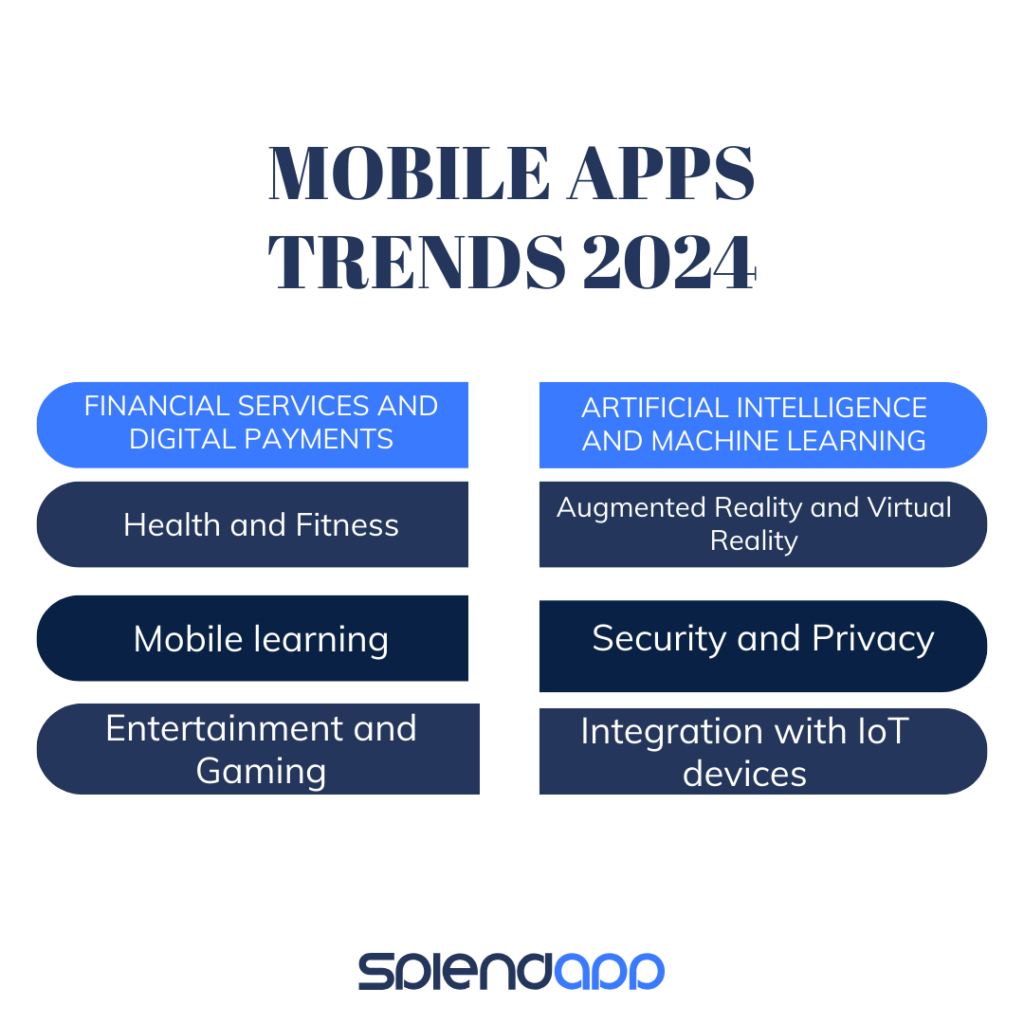

In 2023, Mobile Apps Trends have seen notable developments in several areas. Prominent among these trends are the use of artificial intelligence to provide more personalized experiences, and the integration of augmented reality and virtual reality technologies to provide immersive experiences.
Great emphasis has also been placed on security and privacy to protect user data. In addition, integration between applications and IoT devices has evolved, increasing the effectiveness of controlling smart devices.
In the field of finance and business, we have seen progress in digital payment applications and financial services. In the field of health and fitness, applications are now providing more accurate analyses and personalized advice to users.
Finally, edutainment applications have continued to evolve, making learning more flexible and entertainment experiences more interactive.
So we will dive deeper into mobile app trends in 2024 and how to navigate the future of mobile apps.
In 2024, smartphone apps have evolved dramatically, with several notable trends emerging:

Artificial Intelligence and Machine Learning: Applications that use artificial intelligence to provide personalized experiences and improve performance.
Augmented Reality and Virtual Reality: The use of AR and VR technologies for immersive experiences in areas such as entertainment and education.
Security and Privacy: Increased focus on protecting user data and enhancing digital security.
Integration with IoT devices: Applications that seamlessly interact with home and personal smart devices.
Financial Services and Digital Payments: Improvements in digital payments applications and financial services to facilitate transactions.
Health and Fitness: Apps that provide personalized analytics and advice based on health and fitness data.
Mobile learning: An evolution in e-learning applications to make learning more interactive and flexible.
Entertainment and Gaming: Cutting-edge entertainment and gaming experiences that deliver greater interactivity and immersion.
These trends reflect the continuing development of mobile technology and its increasing impact on various aspects of daily life.
Navigating the future of mobile apps requires understanding current trends and adapting to ongoing technological changes. Here are some tips for staying informed and adapting to this evolving field:
Keeping up with technology: Make sure to follow the latest technologies in the field of smartphone applications, such as developments in artificial intelligence, augmented/virtual reality, and the Internet of Things.
Understand security and privacy challenges: As reliance on apps increases, you should be aware of security and privacy risks and how to address them.
Focus on user experience: Ensuring a smooth and enjoyable user experience remains key. Paying attention to the intuitive and interactive design of applications is very important.
Continuous innovation: Be innovative and be prepared to try new ideas and unconventional concepts in app development.
Continuing education and training: A high level of skills and knowledge must be maintained through continuous learning and training, especially in areas such as programming, user interface design, and user experience.
Adapting to market changes: Understanding market needs and user expectations can help direct development towards the most in-demand trends.
Collaborations and Partnerships: Collaborating with other developers, technology companies, and educational institutions can provide opportunities for innovation and learning.
Leverage Big Data and Analytics: Use data and analytics to understand user behavior and improve applications based on actual feedback.
By following these tips, you can be better prepared to navigate the future of mobile apps and take advantage of the opportunities that evolving technology offers.
The importance of Mobile Apps Trends lies in many aspects, whether for developers, businesses, or end users. Here are some key points that highlight the importance of these trends:
Improving the user experience: Trends such as artificial intelligence and augmented reality are making mobile applications more interactive and personal, significantly improving the user experience.
Increased efficiency and productivity: Mobile apps that use advanced technology can help users manage their daily tasks more efficiently, increasing their productivity.
Business Innovation: Companies that exploit these trends are able to offer innovative products and services, strengthening their market position and opening new horizons for growth.
Access to new information and services: Advanced mobile applications provide easier and faster access to a wide range of information and services, from health care to financial services.
Enhancing security and privacy: With increasing awareness of the importance of digital security, application development trends contribute to improving user data protection.
Integration with everyday technology: Advanced applications become an integral part of everyday life, making it easier for individuals to interact with smart device technology and the Internet of Things.
Opening up new markets: New trends in mobile apps create opportunities to explore new markets and untapped audiences.
Social and cultural influence: Mobile applications influence social and cultural behavior, allowing new ways of communication and interaction between individuals.
Overall, mobile app trends not only enhance users’ experience and improve businesses but also contribute to shaping the future of technology and its impact on society.
Concluding our look at mobile app trends in 2024, we can see how these technologies are not only limited to improving the functionality of smartphones but also have a profound impact on various aspects of our daily lives.
From artificial intelligence and augmented reality to enhancing digital security and providing innovative educational experiences, smartphone apps continue to push the boundaries of technology and creativity.
With the continuous development in this field, we are entering a new era where the integration between technology and daily life becomes more seamless and effective.
Mobile apps promise more innovations that will change the way we work, learn, communicate, and interact with the world around us. It opens the door to endless possibilities, making the future unimaginably exciting for users and developers.